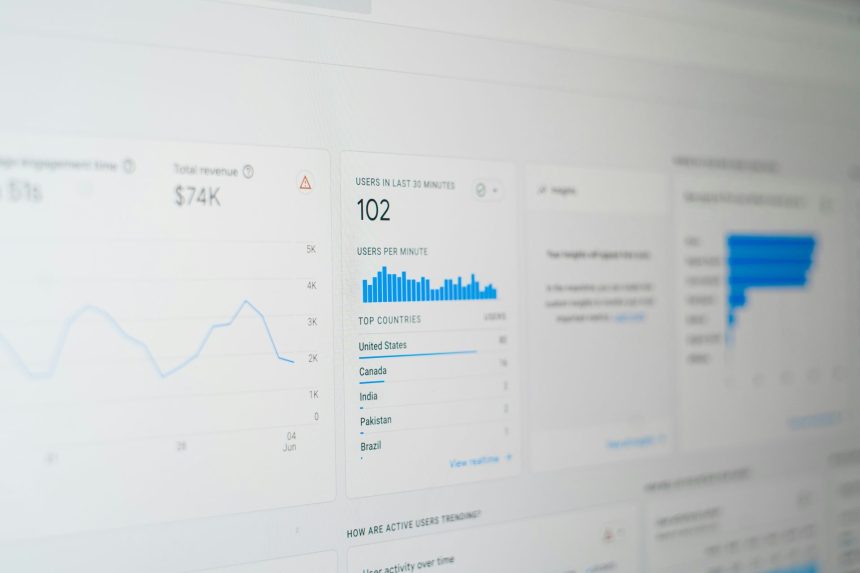Digital marketing has undergone a radical transformation over the past few years, with AI applications emerging as a powerful force reshaping how businesses approach search engine optimization. Traditional SEO strategies—once reliant on manual keyword research, content creation, and link building—now intersect with machine learning algorithms, natural language processing, and predictive analytics. This convergence creates both unprecedented opportunities and new challenges for businesses seeking online visibility.
The AI Revolution in SEO Strategy
Search engines themselves have evolved dramatically, with Google’s algorithms becoming increasingly sophisticated at understanding user intent, content quality, and contextual relevance. These advancements mean that successful SEO requires more than basic optimization tactics—it demands strategic intelligence that can analyze massive datasets, identify emerging patterns, and adapt quickly to algorithm updates that once caught entire industries off guard.
Understanding Modern Search Algorithms
Modern search engines employ neural networks and machine learning models to evaluate content quality, relevance, and user satisfaction. Google’s BERT and MUM updates represent significant leaps in natural language understanding, enabling search engines to interpret queries with human-like comprehension. This evolution means that content must genuinely answer user questions and provide valuable information rather than simply incorporating keywords at predetermined densities.
Data-Driven Decision Making
AI applications and tools process vast amounts of ranking data, competitor analysis, and user behavior patterns in seconds—work that would take human analysts weeks or months. This capability enables more precise targeting, content optimization, and strategic planning. AI-First SEO agencies like BrainZ Digital, for example, leverage these technologies to deliver results that traditional manual approaches simply cannot match in terms of speed, scale, and accuracy.
Key AI Applications in Modern SEO
Intelligent Content Optimization
AI-powered tools analyze top-ranking content to identify patterns in structure, depth, semantic relationships, and topical coverage. These insights inform content creation strategies that address user intent comprehensively while maintaining natural readability. Rather than guessing what search engines value, AI reveals actual ranking factors through pattern recognition across thousands of successful pages.
Predictive Keyword Research
Machine learning models forecast keyword trends, seasonal fluctuations, and emerging search opportunities before they become competitive battlegrounds. This predictive capability allows businesses to create content for rising queries while search volume remains relatively low, establishing authority before competitors recognize opportunities. Traditional keyword research tools report historical data; AI anticipates future demand.
Automated Technical Audits
Technical SEO encompasses hundreds of potential issues—site speed, mobile responsiveness, structured data implementation, crawl efficiency, and indexation problems. AI-powered auditing tools continuously monitor websites, automatically detecting technical issues and prioritizing fixes based on potential impact. This ongoing vigilance prevents small problems from escalating into ranking catastrophes.
Balancing Automation with Human Expertise
Where AI Excels
Data processing, pattern recognition, performance tracking, and technical optimization represent ideal AI applications. Machines handle repetitive analytical tasks faster and more accurately than humans, freeing marketing professionals to focus on strategic thinking and creative execution. AI also excels at A/B testing at scale, running simultaneous experiments that would be impractical manually.
The Irreplaceable Human Element
Despite technological advances, human creativity, emotional intelligence, and strategic vision remain irreplaceable. AI generates insights and recommendations, but humans make final decisions about brand voice, content angles, and strategic priorities. The most effective SEO strategies combine AI’s analytical power with human judgment about audience psychology, brand alignment, and competitive positioning.
Preparing for an AI-Driven SEO Future
Embracing Continuous Learning
SEO professionals must develop AI literacy, understanding both the capabilities and limitations of emerging tools. This doesn’t require programming expertise, but it does demand a willingness to experiment with new platforms and adapt workflows as technology evolves. Organizations that resist this transition will find themselves increasingly disadvantaged against competitors who embrace intelligent automation.
Investing in Quality Infrastructure
AI-powered SEO requires clean data, well-structured websites, and robust analytics implementation. Organizations should audit their technical foundations, ensuring tracking accuracy, site architecture clarity, and content management systems that support rapid iteration. Poor data quality undermines even the most sophisticated AI applications and tools.
Focusing on User Experience
As search algorithms grow more sophisticated, they increasingly prioritize genuine user satisfaction over technical manipulation. Websites must deliver fast loading times, intuitive navigation, valuable content, and seamless experiences across devices. AI helps optimize these elements, but cannot compensate for fundamentally poor user experiences.
FAQ Section
Will AI replace human SEO professionals?
AI augments rather than replaces human expertise. While automation handles data analysis and technical tasks, strategic thinking, creative content development, and business alignment require human judgment. The role is evolving rather than disappearing.
How expensive are AI-powered SEO tools?
Costs vary dramatically, from affordable subscription tools for small businesses to enterprise platforms requiring significant investment. Many powerful AI capabilities are now accessible through reasonably priced SaaS platforms that were previously only available to large agencies.
Can small businesses benefit from AI in SEO?
Absolutely. AI-powered tools democratize sophisticated capabilities previously available only to enterprises with large marketing budgets. Small businesses can now access competitive intelligence, content optimization, and technical auditing at accessible price points.
How quickly can AI-driven SEO deliver results?
SEO remains a medium-term strategy regardless of the tools used. However, AI accelerates progress by identifying high-impact opportunities faster and optimizing more efficiently. Expect meaningful improvements within 3-6 months for competitive markets.
What’s the biggest mistake businesses make with AI SEO tools?
Over-reliance on automation without strategic oversight leads to generic content and missed opportunities. AI provides recommendations, but human judgment must guide implementation based on brand identity, audience understanding, and business objectives.
Conclusion
Artificial intelligence has fundamentally altered the SEO landscape, offering unprecedented analytical power and optimization capabilities. Businesses that strategically integrate AI applications and tools while maintaining human creativity and strategic oversight gain significant competitive advantages in search visibility. The future belongs not to those who resist technological change, but to organizations that thoughtfully combine artificial intelligence with human expertise to create genuinely valuable online experiences that both search engines and users appreciate.
Photo by 1981 Digital on Unsplash







